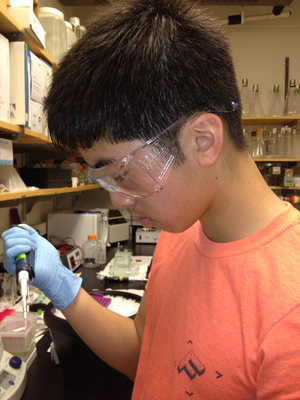
The Department of Cell Biology encourages Duke Undergraduates to participate in research in our laboratories. Undergraduate research experience can deeply enrich and complement a students course work and it can be an important factor in successfully applying to competitive Graduate School and Medical Training programs.
Over the last 3 years our department has mentored almost 50 undergraduates, providing opportunities for students to learn the methods and approaches of scholarly research. Many of these students have gone on to enter well regarded post-graduate and medical training programs. Research is typically led by graduate students or postdoctoral fellows within the laboratory with whom undergraduates work closely with along with mentoring by our Faculty.
Undergraduate research projects are an exciting and important way students can get "hands on" experience to jump start their careers as independent scientists. Students interested in applying for CellBio493 Independent Study should follow the instructions given here. Useful information can also be found at the Duke Undergraduate Research Support Office. The Cell Biology Director of Undergraduate Studies is Dr. Sharyn Endow (office hours: currently by Zoom, email for appointment). Dr. Endow can be contacted directly for more information. Click here for a list of our current undergraduate students. And, click the link below to see our most recent students who, by performing research in Cell Biology, graduated with distinction.